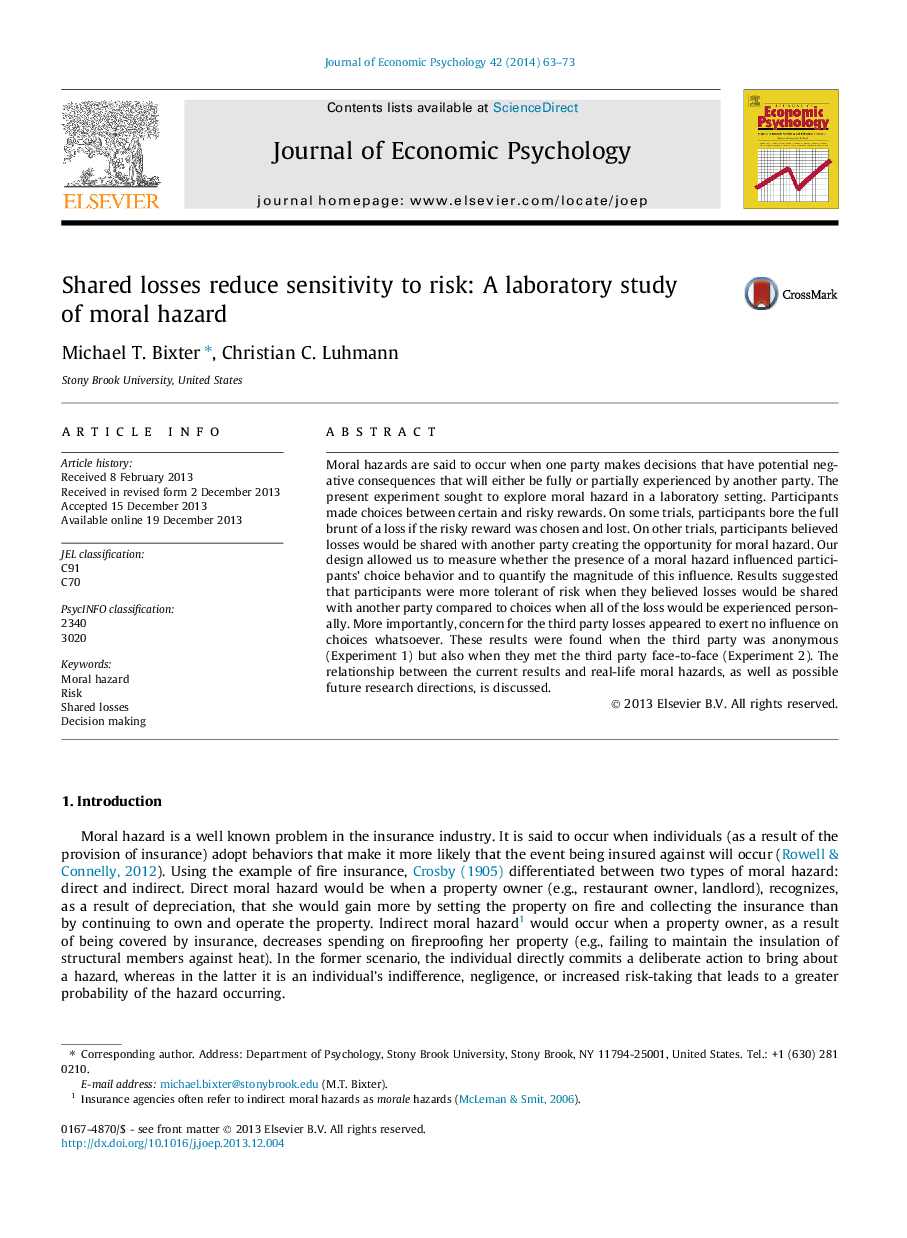| کد مقاله | کد نشریه | سال انتشار | مقاله انگلیسی | نسخه تمام متن |
|---|---|---|---|---|
| 884908 | 1471724 | 2014 | 11 صفحه PDF | دانلود رایگان |
• Individuals’ sensitivity to risk is reduced when losses are shared with a third party.
• Concern for the third party losses exerted no influence on choices.
• Individuals maximized their personal earnings at the expense of the third party.
• Reducing the distance between parties did not reduce these effects.
Moral hazards are said to occur when one party makes decisions that have potential negative consequences that will either be fully or partially experienced by another party. The present experiment sought to explore moral hazard in a laboratory setting. Participants made choices between certain and risky rewards. On some trials, participants bore the full brunt of a loss if the risky reward was chosen and lost. On other trials, participants believed losses would be shared with another party creating the opportunity for moral hazard. Our design allowed us to measure whether the presence of a moral hazard influenced participants’ choice behavior and to quantify the magnitude of this influence. Results suggested that participants were more tolerant of risk when they believed losses would be shared with another party compared to choices when all of the loss would be experienced personally. More importantly, concern for the third party losses appeared to exert no influence on choices whatsoever. These results were found when the third party was anonymous (Experiment 1) but also when they met the third party face-to-face (Experiment 2). The relationship between the current results and real-life moral hazards, as well as possible future research directions, is discussed.
Journal: Journal of Economic Psychology - Volume 42, June 2014, Pages 63–73
